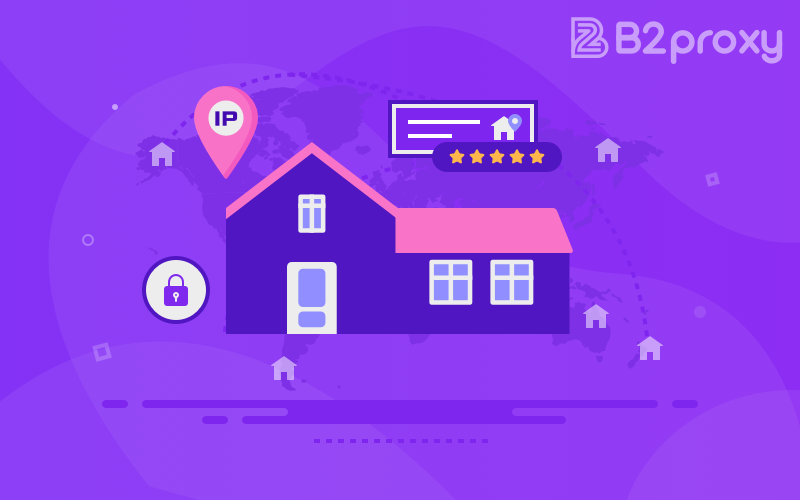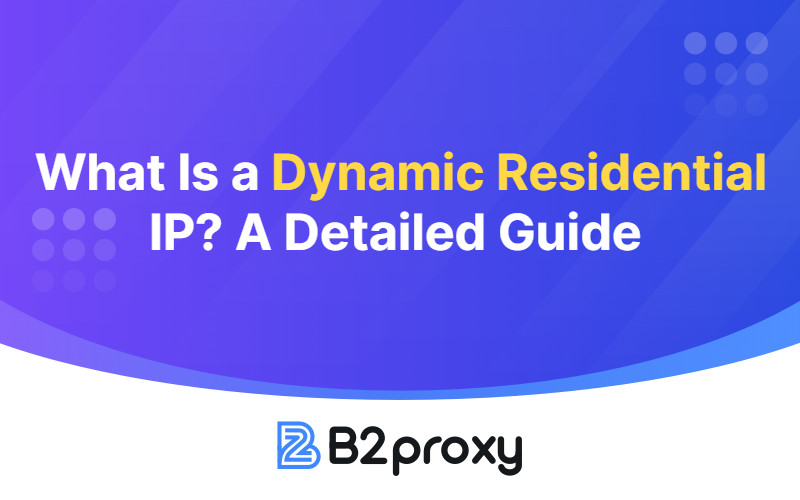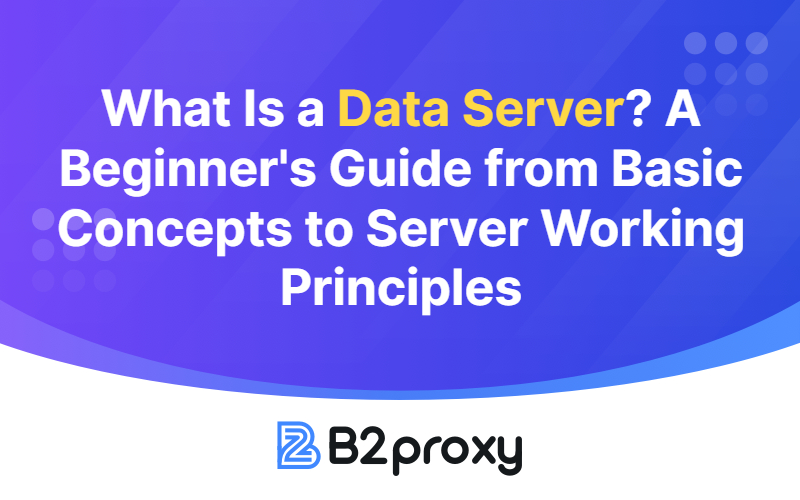A Comprehensive Understanding of Different Types of Proxy IP
 July 18.2025
July 18.2025

<p style="line-height: 2em;"><span style="font-family: Calibri; font-size: 16px;">Proxy IP has become an important tool for enhancing efficiency and protecting privacy in network operations such as information acquisition, data crawling, anonymous browsing, and automated testing. With the evolution of technology and diversification of application requirements, proxy IPs have been subdivided into multiple types, each of which differs in performance, anonymity, and usage.</span></p><p style="line-height: 2em;"><span style="font-family: Calibri; font-size: 16px;">Understanding the classification of proxy IP not only helps users to accurately choose the right service according to their needs, but also effectively avoids access failure, account blocking, data anomalies and other problems caused by improper selection. In this article, we will systematically sort out the common types of proxy IPs from different perspectives and analyze their applicability with practical scenarios.</span></p><p style="line-height: 2em;"><span style="font-family: Calibri; font-size: 16px;">Classification by IP Source </span></p><p style="line-height: 2em;"><span style="font-family: Calibri; font-size: 16px;">According to the source channel of IP address, proxy IP is usually divided into three categories: data center proxy, Residential proxy and mobile proxy.</span></p><p style="line-height: 2em;"><span style="font-family: Calibri; font-size: 16px;">Data center proxies refer to IP resources from cloud servers or IDC rooms, which are addresses in virtual environments. This type of IP has high-speed bandwidth, stable connection and lower cost, which is suitable for high-frequency request tasks such as large-scale data crawling, content collection and price monitoring. However, due to the concentration of their IP segments and the lack of real user background, they are easy to be recognized by the target website as the source of automated operations, and thus have a higher risk of blocking on platforms with stricter wind control.</span></p><p style="line-height: 2em;"><span style="font-family: Calibri; font-size: 16px;">Residential proxies, on the other hand, are IP addresses obtained from home broadband networks, assigned by Internet Service Providers (ISPs) with a real Residential network identity. These proxy IP addresses are usually not easy to be recognized and are closer to the real user's access track. They are widely used in account registration, social marketing, advertisement verification, robocalls and other scenarios that require high anonymity and trust.</span></p><p style="line-height: 2em;"><span style="font-family: Calibri; font-size: 16px;">Mobile proxies, on the other hand, originate from 3G/4G/5G cellular networks and are based on IPs provided by real cell phone carriers. these proxies have the highest level of anonymity, and are especially suitable for simulating the access environment of mobile users, which is suitable for mobile application data capturing, app testing, advertisement tracking and other fields. Due to the frequent IP rotation characteristic of mobile networks, the anti-blocking ability is also excellent.</span></p><p style="line-height: 2em;"><span style="font-family: Calibri; font-size: 16px;">Classification by anonymity level </span></p><p style="line-height: 2em;"><span style="font-family: Calibri; font-size: 16px;">Proxy IPs can also be classified into transparent proxies, anonymous proxies and highly anonymous proxies based on how well they hide their real identity.</span></p><p style="line-height: 2em;"><span style="font-family: Calibri; font-size: 16px;">Transparent proxies do not hide the user's real IP; the target server can recognize that the request is using a proxy and see the original IP address. These types of proxies are typically used for cache optimization or internal network management, and are not suitable for operations that require confidentiality of identity or circumvention of blocking.</span></p><p style="line-height: 2em;"><span style="font-family: Calibri; font-size: 16px;">Anonymous proxies are able to hide the user's real IP, but may still reveal that a “proxy is being used”. Although it has a certain degree of privacy protection, there is still a risk of being recognized on platforms with strict anti-crawler mechanisms.</span></p><p style="line-height: 2em;"><span style="font-family: Calibri; font-size: 16px;">Highly anonymous proxies are currently the most covert type of proxy, neither exposing the user's real IP, nor letting the target website realize that the request is relayed through the proxy, and are often used in scenarios where privacy protection and anti-detection requirements are extremely high.</span></p><p style="line-height: 2em;"><span style="font-family: Calibri; font-size: 16px;">Classification by Access Protocol and Usage </span></p><p style="line-height: 2em;"><span style="font-family: Calibri; font-size: 16px;">According to different technical implementations and access protocols, proxy IPs can also be classified into HTTP/HTTPS proxies, SOCKS proxies, and static and dynamic proxies.</span></p><p style="line-height: 2em;"><span style="font-family: Calibri; font-size: 16px;">HTTP proxies are suitable for web data access, such as web browsing, crawler requests, API calls, etc. HTTPS proxies provide encrypted transmission on this basis to ensure data security.</span></p><p style="line-height: 2em;"><span style="font-family: Calibri; font-size: 16px;">SOCKS5 proxy protocol is more flexible and supports multiple types of traffic transmission, including TCP and UDP protocols. It is commonly used to penetrate firewalls, perform remote access, use P2P software or handle non-HTTP application scenarios such as games and instant messengers.</span></p><p style="line-height: 2em;"><span style="font-family: Calibri; font-size: 16px;">Static proxy refers to a fixed IP address and is suitable for businesses that need to maintain a login status and keep a consistent identity, such as account maintenance and email sending. Dynamic proxies, on the other hand, are equipped with an automatic switching function that allows them to change their IP address automatically by time or per request, which is suitable for batch tasks that require high access frequency and distribution, such as search engine crawling or highly concurrent access.</span></p><p style="line-height: 2em;"><span style="font-family: Calibri; font-size: 16px;">The type of proxy IP determines its effectiveness and stability in specific scenarios. Reasonable choice of proxy type not only significantly improves the task completion rate, but also protects users in terms of security and privacy protection.</span></p><p style="line-height: 2em;"><a href="https://www.b2proxy.com/" target="_self"><span style="font-family: Calibri; font-size: 16px;">B2Proxy</span></a><span style="font-family: Calibri; font-size: 16px;"> provides comprehensive coverage of Residential proxy resources, which are suitable for data capture, account management, ad tracking, cross-border access and other diverse scenarios. We are committed to providing stable, compliant and highly anonymous proxy services for enterprises and developers.</span></p><p><br/></p>
You might also enjoy

What Is a Dynamic Residential IP? A Detailed Guide to Cross-Border E-commerce Account Isolation and Risk Control Solutions
Breaks down dynamic residential IPs, highlighting their role in account isolation, risk control, and building secure cross-border e-commerce systems.
February 27.2026
How to Access TorrentGalaxy Stably? 2026 Latest Working Links and Proxy Solutions Explained
A practical 2026 guide to accessing TorrentGalaxy reliably, explaining domain shifts, ISP restrictions, proxy methods, and security considerations.
February 27.2026
What Is a Data Server? A Beginner's Guide from Basic Concepts to Server Working Principles
Beginner's guide to data servers, covering core concepts, working principles, architecture, stability factors, and future cloud-driven trends.
February 26.2026







